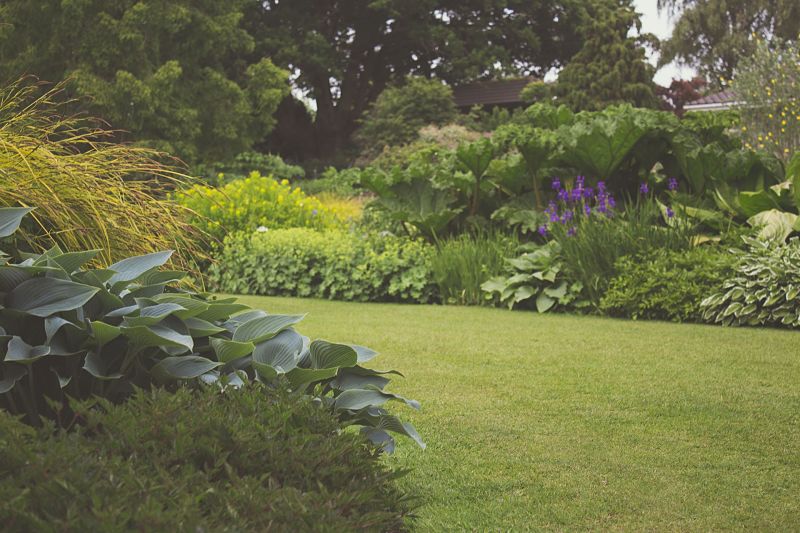
With spring bulbs poking their heads up, and the promise of nicer weather on the horizon, it’s the time of year when many gardeners are gearing up for the next few months. However, if you’re a first time gardener, you might be wondering where to start. This resource will help you to consider what you need to know when gardening for the first time.
1. It’s good for you!
Really, if you need any more convincing to get out there it is that gardening is good for you, both physically and mentally. Even a gentle potter around the garden pulling up weeds can burn more calories than a session at the gym. Gardening may be low intensity but the minutes can fly by in a peaceful and mindful escape.
2. You’ll need some tools
If you’re new to gardening then you may think you can just head out and get cracking. Well, you can, but things will be a great deal easier if you have the right tools for the job. There are certain basics which you will need such as a trowel, fork, and some well-fitting gardening gloves. Beyond this it can be useful to have a gardening tool selection including string, plant markers, spade, rake, broom, hose, watering can, and if you have a lawn, a lawnmower. You may also quickly discover that you need a means of sorting out your garden waste. Councils differ on how they manage this, or you may start your own compost heap.
3. Beautiful gardens don’t just happen
In many ways, gardening is like cleaning – it’s a never ending job. There are strategies for making your garden lower maintenance but beautiful lawns and blooming borders require a good and regular dose of TLC. For example, weeding should be a regular and committed task, as should taking care of the edges of your lawn. Little and often will soon see your garden tamed.
4. Gardens need storage
If you’ve got kids with their associated garden toys you’ll learn this quickly, but even childfree gardens need some adequate garden storage. Pots will come in and out of circulation, tools will survive better when kept out of the elements, and summer furniture is best stored away for winter. When considering your garden for the first time, give some thought to where everything will live.
5. Understand the basics of growth
Hark back to your old school biology lessons for a moment and think about what plants need to thrive. If you’ve invested in new plants for your garden then you’ll need to know exactly what needs to be done to keep them alive and looking their best. All new plants state what conditions they like on their label. Take note of these, and especially soon after planting, make sure they get what they need. You’ll also need to consider where in the garden they are best suited to.
6. Understand your own turf
By this we don’t just mean your lawn. What soil do you have? Is it clay or sand? Which direction does your garden face? Are there areas which are poorly drained or regularly shaded? Before you consider any planting consider the nature of your specific garden. This way you can match the right plants and adaptations to the right area and get the best out of what you’ve got.
7. You’re going to need water, and lots of it
Yes, we get some pretty reliable rain, we’re known for it, but come the summer months your well-loved garden is going to need plenty of water to keep it looking fantastic. You may have an outdoor tap from which you can run a hose, but you may find it more effective to fit a rain water butt. This will collect the rain water from your roof and in fact, this water is best for your plants.
8. Don’t stop
Gardening is all about delayed rewards and delayed gratification. There are a few garden projects which will instantly offer payment for your effort in good looks but the real pay-off comes over time. Try to factor in a little regular time every week during spring and summer to keep your garden looking beautiful.
9. Know the difference between perennial and annual plants
You wouldn’t think gardening requires new vocabulary, but it does if you want to maximise both your effort and your spend. Annual plants are all about one season alone. You plant them each and every year. Perennials shouldn’t die over the winter and, with the right care, will come back again the following year. Look at the labels and get to know what you’re buying.
10. You’ll need to wage war on pests
Once you start putting some love and care in to your garden the local slug, snail, aphid and other pest populations will soon get word. You’ll need to decide how you’re going to manage these problems. You’ll be able to choose between natural and chemical methods of pest control. Look in to both and consider which you’re happiest with. It can feel very defeating putting in the effort just to wake up the next day to discover the pests have had their way.
11. You’ll need some cleaning strategies
Gardening is mucky work. You’ll likely need a broom for keeping your potting area clean, but you’ll also likely need to remember to wash tools as needed. Furthermore, you’ll almost certainly want to invest in a good nail brush for removing soil, and make sure you factor in time for a quick shower or a long soak in the tub following a gardening session.
Gardening can be immensely rewarding. It’s relaxing and lifts the spirit. It allows time to focus on nature and a project away from the rat race of life. It is good exercise and you can do as much or as little as you like and you’ll always reap the benefits. Get out and make the most of your garden using our top tips and see for yourself how fabulous gardening is.


